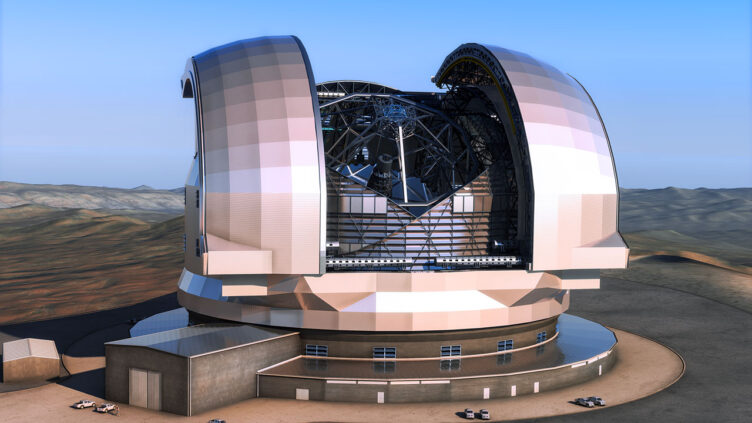Website:
https://elt.eso.org/instrument/HIRES/
Coordination:
The ANDES project is developed by an international consortium involving research institutes in 12 countries (Brazil, Chile, Denmark, France, Germany, Italy, Poland, Portugal, Spain, Sweden, Switzerland, and the United Kingdom) and with the contribution of the European Southern Observatory (ESO).
Principal Investigator: Alessandro Marconi (University of Florence)
Project Scientist: Roberto Maiolino (University of Cambridge)
Portuguese Participation
Executive Board: Nuno Santos
System Engineer (Deputy): Alexandre Cabral
Software System Engineer (Deputy): Manuel Monteiro
SAT Working Group Coordinator (Deputy): Carlos Martins
Scope:
Funding:
ESO (Phase A).
ANDES (ArmazoNes high Dispersion Echelle Spectrograph) is the planned high-resolution (R ~ 100,000) spectrograph for ESO’s Extremely Large Telescope (ELT) operating at visible and near-infrared (0.4-1.8 micrometres) wavelengths. The ANDES project successfully passed its Phase A and has started Phase B (Preliminary Design) in late 2021.
The high-resolution data collected by ANDES@ELT will enable addressing many of the topics at the forefront of research in astrophysics and cosmology: Exoplanets and protoplanetary discs; stars and stellar populations; Galaxy formation and evolution, and the intergalactic medium; cosmology and fundamental physics.
The ELT’s huge light-gathering capabilities will allow us to perform comprehensive high-resolution spectroscopy of metal-free stars in our galaxy, making it possible to understand the nature and formation of these most primitive stars. Another key goal of ANDES is to measure isotopic abundances of atomic species and to spectroscopically resolve the effects of surface convection, which will deepen our understanding of the physics of stellar atmospheres and nucleosynthesis processes.
Our team has a strong involvement in this project, playing a key role in the development of its scientific priorities and definition of top level requirements.

